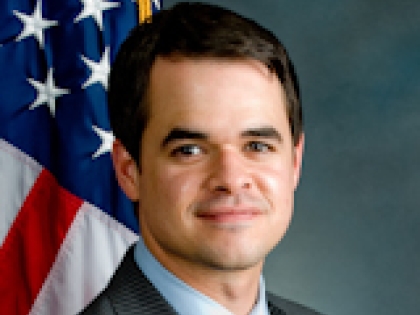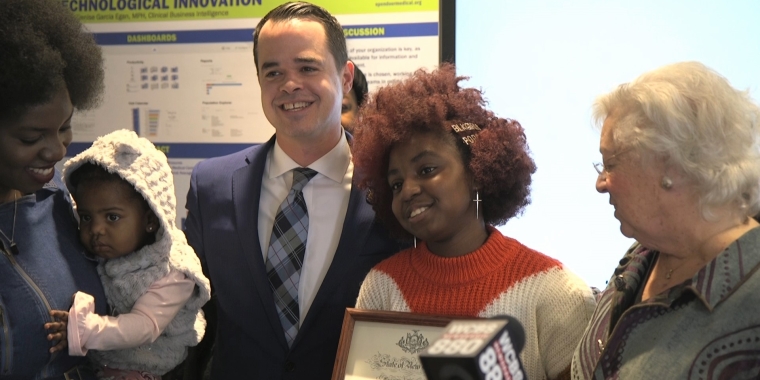
Senator Carlucci & Assemblywoman Galef Announce Legislation to End Pay Gap
April 4, 2017
ALBANY (April 4, 2017) – To commemorate Equal Pay Day, Senator David Carlucci (D-Rockland/Westchester) and Assemblywoman Sandy Galef (D-Westchester/Putnam) announced today that they have introduced comprehensive legislation, A.6707/S.5233, to prohibit employers from inquiring about job applicants’ wage histories before making a job or salary offer. Their bill is aimed at eliminating the pay gap that women and people of color frequently experience by removing one of the root causes of discrimination in the workplace.
This bill expands equal pay protections put in place by Governor Andrew Cuomo earlier this year through an executive order banning state entities from asking job applicants for their salary histories or basing evaluations on past wage earnings. Galef and Carlucci’s legislation would push these measures into both the private and public sectors. Specifically, the bill would make it illegal for employers to broach the salary history question as a requirement to be considered for an interview or a job, to seek that information from the applicant’s current or former employer or, in the event such figure is known, to rely on it when determining future wages. However, the bill does allow for past salary confirmation after an offer of employment with compensation has been made and the job candidate permits it in writing.
A worker’s salary history can trail them throughout the course of their career as yesterday’s pay can affect tomorrow’s. It is a key contributor to the gender pay gap since many employers and hiring managers use earnings information from previous employment as a basis to set future wages. A disproportionately larger number of women and people of color are thus affected, as these are groups who historically make significantly less than their white male counterparts, even despite strong skills during negotiations.
“A longstanding practice of employers during the hiring process, the salary history inquiry is a hidden, yet pervasive form of discrimination,” said Assemblywoman Sandy Galef. “It is often perpetuated without any knowledge or malice. Many employers will claim that asking about prior compensation is a reasonable exercise that allows them a means of gauging how likely a candidate will be to accept an offer and has no foundation in discrimination. However, even a company policy that is gender neutral on its face like one that gives qualified candidates 10% over their last salary is complicit in furthering workplace bias. By banning the question during the hiring process, employers will be required to offer jobs and compensation to prospective employees based on their own skills, merit and demands of the job, not gender, race or ethnicity.”
“We are taking a stand to make sure that women get paid equally for equal work to men,” said Senator David Carlucci. “It is unacceptable to continue furthering the equity gap between men and women. The legislation we are putting forward today will help fight back. Preventing prospective employers from asking about previous salaries will level the playing field and make the merits of an applicant the only thing that matters.”
Legislation targeting pre-hire salary discussions has gained traction at the national, state and local levels. Last year, Massachusetts became the first state to outright bar previous pay questions while bills have also been introduced in the U.S. House of Representatives and in approximately 20 other states. On the heels of the Massachusetts victory, Mayor Bill de Blasio signed an executive order applying a similar ban to New York City municipal agencies. New York City Public Advocate Letitia James’ proposal extending to public and private employers has the support of a majority of City Council members and is expected to go up for a full vote on tomorrow.
“It is simply unacceptable that in 2017 women still do not receive equal pay for equal work,” said New York City Public Advocate Letitia James. “Asking job applicants for previous salary information to determine compensation perpetuates a gender wage gap that has not only left women behind for decades, but hurts our economy. I applaud Assemblywoman Galef and State Senator Carlucci for mirroring my legislation with this statewide bill that ensures women get the fair treatment they deserve.”
It has also gained wide support among women’s rights advocates and some business organizations, including global technology company, Kickstarter, PBC.
“On this Equal Pay Day, Kickstarter is proud to stand with our representatives in Albany in support of equality and against wage discrimination,” said Michal Rosenn, general counsel of Kickstarter, PBC.
Today is National Equal Pay Day. Although it changes yearly, this date signifies how far into 2017 women have to work to earn the same level of income that men earned in 2016. In other words, the average woman would need to work 15 months in order to make one year of the average man’s pay. The statewide wage gap of 89% is less than the national average, but it costs New York women $8500 annually in lost income and between $450,000 to a $1,000,000 over the course of a career.
“If you want to take a big chunk out of the gender pay gap, stop asking new hires for salary histories,” said Lisa Maatz, vice president of government relations and advocacy at the American Association of University Women. “The use of salary histories allows prior bias and discrimination to follow workers wherever they go, whatever their job, no matter their abilities. Curtailing this practice is the latest frontier in our fight for pay equity, and AAUW applauds Assemblywoman Galef and Senator Carlucci for their efforts to level the playing field for everyone.”
"A woman's low wages can follow her from job to job throughout her career, affecting not just her but her family as well," said Dina Bakst, co-president of A Better Balance: The Work and Family Legal Center. "This bill will go a long way in leveling the playing field for women, especially women of color, and ensuring that this troubling and pervasive practice no longer remains an impediment to economic advancement in the workplace."
“By basing wages on a job applicant’s past salary, pay discrimination from prior employment continues and multiplies through a worker's career,” said Beverly Neufeld, president of PowHer New York. “This common practice exacerbates bias in the job and negotiation process, and over time the lower salaries affect a family's financial health and a worker’s retirement security. Passing A.6706/S.5233 which bans salary history in hiring is a concrete step to close the wage and opportunity gap for women and people of color. We applaud Assemblymember Galef for initiating this important and timely legislation.”
“The NAACP New York State Conference supports A.6707 and S.5233. It is time that the State of New York legislative body supports this legislation,” said Hazel Dukes, president of the NAACP New York State Conference. “The hidden process being used by employees is a form of discrimination. All persons should be judged by the job requirement skills and must be compensated on that basis.”
“It is unacceptable that in 2017 we are still looking at a significant pay gap for women and for people of color,” said Katelyn Galbraith, chair of the New York State Public Affairs Committee of the Junior League. “This is an intersectional issue that causes hundreds of thousands of dollars lost over the course of a career. The New York State Public Affairs committee of the Junior Leagues is committed to fighting to close the gap, and supports A.6707 and S.5233 as a commendable step toward eliminating wage discrimination. #AskUsWhatWeAreWorthNotWhatWeArePaid”
###
related legislation
Share this Article or Press Release
Newsroom
Go to Newsroom
Senator David Carlucci Weighs in on New Toll Payer Advocate Offices
December 23, 2019
Lawmakers Present Mother & Daughter With the Signed Bill They Inspired
December 21, 2019
